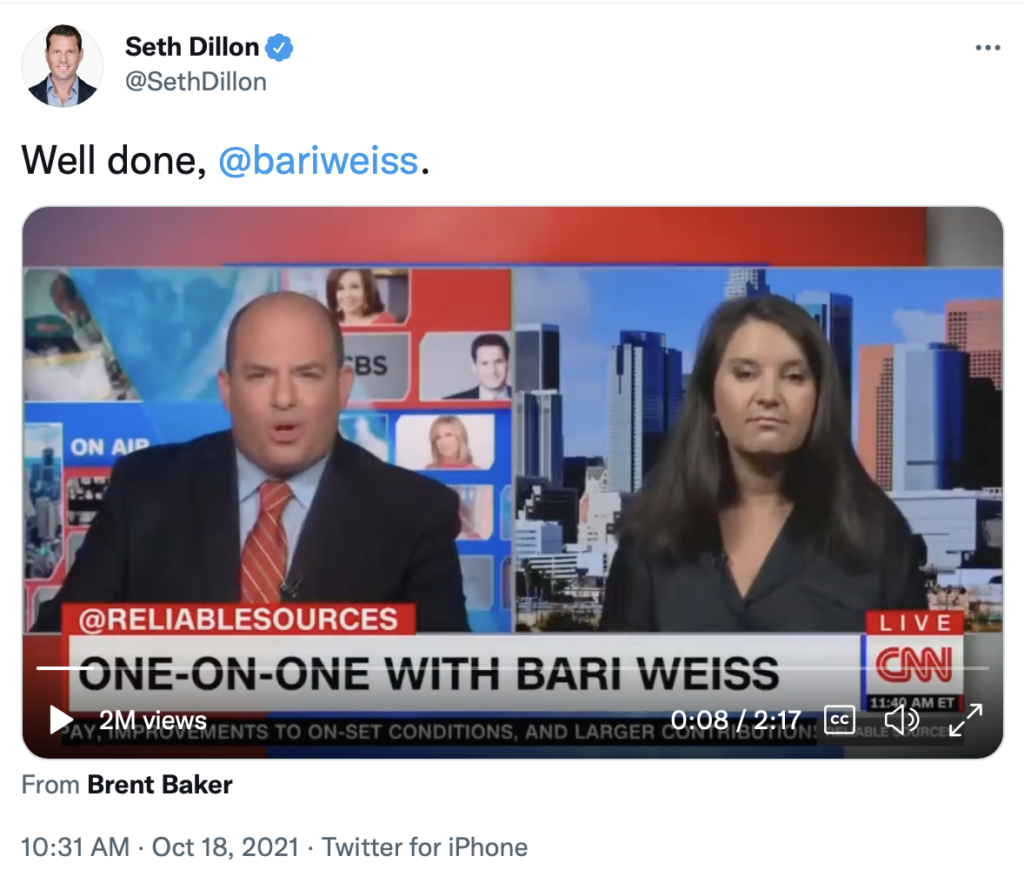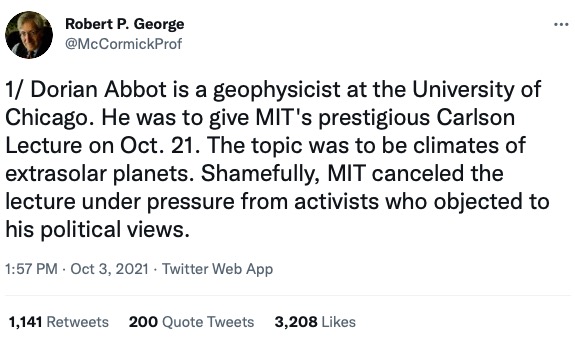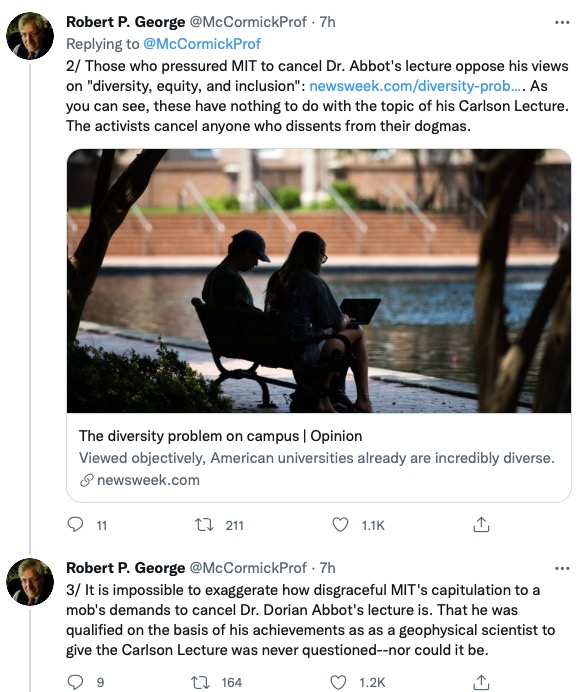Bari Weiss Enumerates the Core Beliefs of Wokeness – Critical Race Theory – Social Justice
I've been posting ad nauseam about Wokeness over the past 18 months because it starkly contradicts many of my core beliefs. And it starkly contradicts basic principles deeply cherished by what I believe to be the great majority of Americans. I have categorized dozens of my articles with the label Wokeness. You can read them all by clicking on this link. I have carefully documented not only theories about why this movement has gained traction. I have also carefully collected many instances in which people have hurt, belittled, fired, tormented and rattled each other by embracing Woke Ideology while throwing long-established beliefs (including basic Enlightenment Principles and Martin Luther King's "content of character" aspirations into the trash.
Bari Weiss has be speaking loud lately, rallying the great majority of people--they tend to be afraid to speak up--to say what they believe and to not feel compelled to say things that they don't believe. It all sounds so simple, but the Twitter mobs are loud and vocal and they have thoroughly intimidated those who are in charge of our meaning-making institutions (e.g., schools, media, government, social media). Weiss argues that if we all just start speaking up, this insanity will diminish greatly because it will encourage others to speak up too. Here is an excerpt from Bari Weiss' article at Commentary. It is titled "We Got Here Because of Cowardice. We Get Out With Courage: Say no to the Woke Revolution." Here is Wokeness in a nutshell from her article:
It begins by stipulating that the forces of justice and progress are in a war against backwardness and tyranny. And in a war, the normal rules of the game must be suspended. Indeed, this ideology would argue that those rules are not just obstacles to justice, but tools of oppression. They are the master’s tools. And the master’s tools cannot dismantle the master’s house.
So the tools themselves are not just replaced but repudiated. And in so doing, persuasion—the purpose of argument—is replaced with public shaming. Moral complexity is replaced with moral certainty. Facts are replaced with feelings.
Ideas are replaced with identity. Forgiveness is replaced with punishment. Debate is replaced with de-platforming. Diversity is replaced with homogeneity of thought. Inclusion, with exclusion.
In this ideology, speech is violence. But violence, when carried out by the right people in pursuit of a just cause, is not violence at all. In this ideology, bullying is wrong, unless you are bullying the right people, in which case it’s very, very good. In this ideology, education is not about teaching people how to think, it’s about reeducating them in what to think. In this ideology, the need to feel safe trumps the need to speak truthfully.
In this ideology, if you do not tweet the right tweet or share the right slogan, your whole life can be ruined. . . . In this ideology, the past cannot be understood on its own terms, but must be judged through the morals and mores of the present. In this ideology, intentions don’t matter... In this ideology, the equality of opportunity is replaced with equality of outcome as a measure of fairness. If everyone doesn’t finish the race at the same time, the course must have been defective.... In this ideology, you are guilty for the sins of your fathers. In other words: You are not you. You are only a mere avatar of your race or your religion or your class....In this system, we are all placed neatly on a spectrum of “privileged” to “oppressed.” We are ranked somewhere on this spectrum in different categories: race, gender, sexual orientation, and class. Then we are given an overall score, based on the sum of these rankings. Having privilege means that your character and your ideas are tainted.... Racism has been redefined. It is no longer about discrimination based on the color of someone’s skin. Racism is any system that allows for disparate outcomes between racial groups....skeptics of any part of this radical ideology are recast as heretics. Those who do not abide by every single aspect of its creed are tarnished as bigots, subjected to boycotts and their work to political litmus tests.
How in hell's name could anyone be drawn to such stupidity? Weiss points to several causes that have made fertile ground for this dysfunction:
All of this has taken place against the backdrop of major changes in American life—the tearing apart of our social fabric; the loss of religion and the decline of civic organizations; the opioid crisis; the collapse of American industries; the rise of big tech; successive financial crises; a toxic public discourse; crushing student debt. An epidemic of loneliness. A crisis of meaning. A pandemic of distrust. It has taken place against the backdrop of the American dream’s decline into what feels like a punchline, the inequalities of our supposedly fair, liberal meritocracy clearly rigged in favor of some people and against others.



